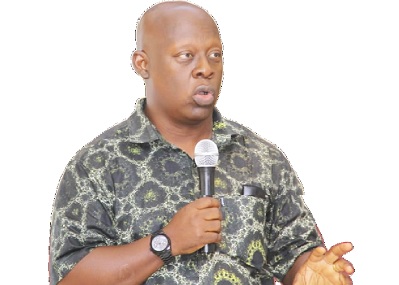
MMDAs, courts urged to enforce sanitation laws
Metropolitan, Municipal and District Assemblies (MMDAs) and the courts have been urged to help enforce sanitation bye-laws and ensure behavioural change among people, particularly, those living along the Odaw River basin.
Advertisement
That would help deal with bad behaviour, such as indiscriminate dumping of waste and putting up of unauthorised structures on watercourses which were fundamental causes of floods.
The Project Coordinator of the Greater Accra Resilient and Integrated Development Project (GARID), Dr Kwadwo Ohene Sarfoh, who made the call, explained that dealing with those negative attitudes while enforcing the bye-laws effectively, would go a long way to help prevent flooding as the rainy season approached.
“All those who live in Accra, particularly, around the Odaw River basin should check their behaviour because the fundamental cause of the floods is bad behaviour such as people dumping waste into drainage systems and people building in waterways," he noted.
He made the call in an interview with the Daily Graphic on the sidelines of a stakeholder engagement workshop in Accra last Wednesday.
Situation
For many decades, the advent of the rains came with various levels of flooding, mainly in Accra, due to human behaviour.
It is on record that urban areas in the country face a number of challenges including rising income disparities and increased vulnerability to disaster and climate change impacts.
The Odaw River basin which is primarily a low-lying area has been subjected to constant flooding in Accra.
Irrespective of the low-lying nature of the area which makes it susceptible to flooding, poor sanitation in the environs and beyond the river's catchment area also adds to the problem.
The workshop, which brought together physical planners, work engineers, magistrates and prosecutors, was therefore aimed at sensitising participants to building resilient communities for flood mitigation and responsible solid waste management through sustainable social and behaviour change communication.
It was organised under the auspices of the GARID project, an inter-ministerial World Bank-funded project being implemented by the Ministries of Local Government, Decentralisation and Rural Development, Works and Housing, and Sanitation and Water Resources.
Dr Sarfoh said the workshop was part of interventions to make Accra a relatively resilient, competitive and attractive city.
He stated that when all key partners such as those brought together for the workshop collaborated effectively and the necessary sanctions were applied to help change behaviour, it would ultimately serve as a deterrent to others whose behaviour adversely affected the environment and caused floods in the city.
Behaviour change
The Workshop Facilitator, Edward Adimazoya, presented key highlights of the GARID Knowledge, Attitudes and Practice (KAP) survey on flood and flood-related behaviours.
He said while construction of drains and other infrastructure was important, ensuring social and behavioural change among individuals was key to addressing causes of floods such as dumping of waste into drains and gutters.
“Behaviour change is central to GARID’s core objectives, hence a social behaviour change communication strategy is needed to guide the process of addressing the flood situation in the city," Mr Adimazoya indicated.
A Magistrate at the District Court at Madina, Susanna Nyakotey, called on duty-bearers at the various assemblies to prevent people from acting in a way that would cause floods.



